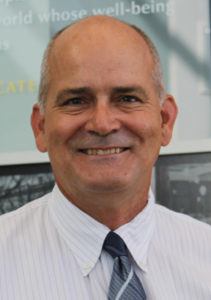Paul Hutson is a professor of clinical pharmacokinetics at the University of Wisconsin (UW)-Madison School of Pharmacy.
Dr. Hutson earned a bachelor’s degree in biochemistry from the University of California-Los Angeles in 1975 and his master’s in chemistry from the University of Washington in 1976. He also earned bachelor’s and doctoral degrees in pharmacy from the University of Washington and the University of Tennessee, respectively. He went on to complete a fellowship in oncology/pharmacokinetics at St. Jude Children’s Research Hospital in Memphis, TN. Hutson practices pharmacy with UWs hospital and clinics oncology and palliative care group. He is also an Associate Member of the UW Carbone Cancer Center.
Understanding Psilocybin in the Body
Hutson’s current work examines the pharmacokinetics of increasing oral doses on psilocybin on healthy adults.1 The study found no psilocybin in plasma or urine and only a small amount of psilocin in the urine. This makes the drug suitable for people with mild to moderate renal impairment. The pharmacokinetics of psilocin were linear with a half-life of 3 hours. Also, the data showed that an oral dose of 25 mg of psilocybin results in about 0.3 mg/kg of drug exposure. The study used excess doses up to 0.6 mg/kg with no serious psychological or physical issues within 30 days. This study was done to extend Phase II clinical trials to Phase III for patients with advanced cancer who are suffering from severe depression and anxiety.
Dosing and Mystical Experiences
In June 2018, Hutson’s research team published a paper that looked at the effects of high escalating doses of psilocybin on healthy volunteers.2 In this study, the participants evaluated their experiences using the Mystical Experience Questionnaire and the Persisting Effects Questionnaire 30 days after the study ended. In addition, the participants gave blood and urine samples, had their vital signs taken and electrocardiograms done before and after each dose. The results showed that high doses of psilocybin elicited subjective effects that were at least as strong as those at lower doses. Also, the participants experienced positive subjective effects 30 days after the study ended. Interestingly, the scores for the rate of complete mystical experience subscale did not give a linear dose-related response. This led the authors to conclude that positive outcomes from psilocybin are not dependent on having a complete mystical experience.
Another area of research Hutson is starting to explore is using psilocybin to treat diseases in patients who do not respond well to traditional therapies.
More information on Dr. Hutson and his work is found on his UW information page and in his LinkedIn profile.

